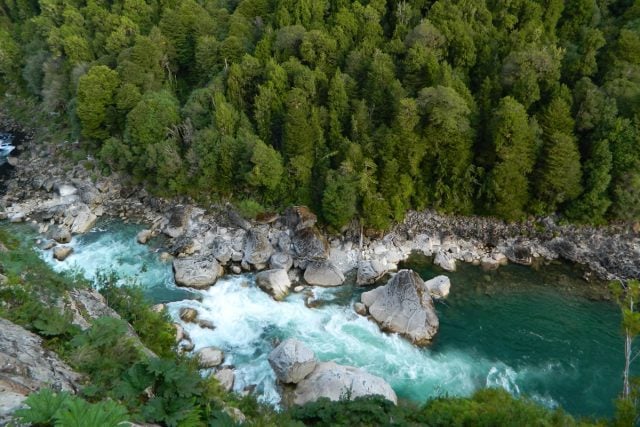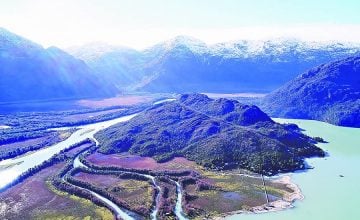Original article: Chile Sustentable: Gremios empresariales intentan desmantelar la Ley SBAP contradiciendo avances de los últimos gobiernos
The Chile Sustainable Foundation has made a direct criticism of the country’s business sectors in light of the implementation of Law 21,600, which establishes the Biodiversity and Protected Areas Service (SBAP) and the National Protected Areas System (SNAP), commonly referred to as the «SBAP Law».
Key business associations, including CPC, Sonami, the Chilean Chamber of Construction, SalmonChile, Corma, Sonapesca, the National Agricultural Society, and the Industrial Fishermen of Biobío, expressed specific concerns regarding how the Ministry of the Environment is drafting the law’s regulations, according to El Mercurio.
Business leaders argue that the new legislation «could lead to a freezing of productive activity,» warning that «we are facing a potential regulatory expropriation,» which they emphasized gives rise to «deep concern,» particularly regarding the 99 polygons that will be designated by law as priority conservation sites.
In response, the Chile Sustainable Foundation criticized the business stance, reminding them that «destroying natural heritage is mortgaging the country’s development.»
«Law 19.300 on Environmental Bases, the Ministry, the Superintendency of the Environment, the Framework Law on Climate Change, and the Biodiversity Service represent significant progress that has allowed for damage prevention, urban decontamination, and remediation of environmental liabilities,» highlighted the Foundation.
They further noted that «these regulations have also enabled Chile to meet international environmental and climate commitments, certify environmental conditions required by investment and trade agreements, and fulfill market requirements for minerals, timber, and food, among others.»
«False Narrative»
Dr. María Isabel Manzur, a researcher in biodiversity and genetic resources at Chile Sustainable, firmly states that business associations have united under a «false narrative» blaming environmental laws for economic stagnation.
«However, economic stagnation and unemployment are not the result of environmental regulations, nor of the SBAP Law, which has yet to be implemented. Everyone knows that there has been economic growth under these same regulations during previous administrations,» the scientist pointed out.
«What is fundamentally flawed is the primary extractive model of natural resource exploitation perpetuated in the country, which severely impacts the environment. The industry’s push to dismantle the SBAP Law aims to prolong such extractivism, now without any control. We find it regrettable that there is an attempt to hinder the implementation of this law,» Dr. Manzur stressed.
Meanwhile, the director of Chile Sustainable, Sara Larraín, emphasized that «the SBAP Law is the result of the sponsorship and efforts of the last four governments of different political backgrounds. It was discussed over 13 years in Congress, and all sectors had ample time and space to express opinions, participate, and propose modifications to its content.»
«To now attempt to leverage the electoral context to halt the implementation of this Law, citing regulatory expropriation, is an affront to democratic institutions and would represent a setback in the environmental conditions and commitments outlined in our trade and investment agreements; a regression from the improvements committed to with the OECD and in international agreements recognized by our Constitution,» Larraín noted.
The environmentalist recalled that the priority sites for conservation mentioned by business groups «have been a gain in biodiversity since the 1990s, established with significant participation from regions and the scientific community, and now the SBAP Law seeks to review and organize them. The recognition of priority sites does not affect existing permits for productive activities within them.»
«Environmental organizations urge business groups to respect the laws and standards that have strengthened the welfare and development of the country; and to use democratic institutions to discuss the changes they wish to propose,» Larraín concluded, adding that «if we perpetuate the health crises of the salmon industry, atmospheric and water pollution from mining, the destruction of native forests, or chemical contamination from agribusiness, Chile would have no future.»
Continue reading on this topic:
The Citizen




